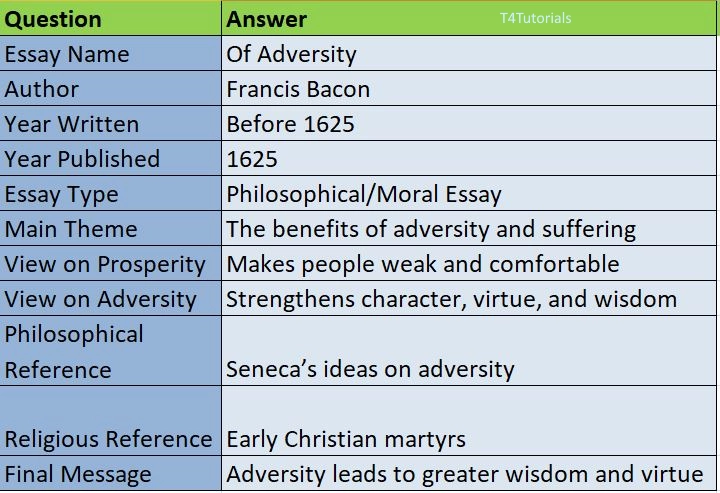Summary:
In Of Adversity, Francis Bacon argues that adversity, though difficult, is essential for growth, wisdom, and moral strength. He contrasts prosperity, which he believes weakens individuals, with adversity, which strengthens character and virtue. Bacon refers to Seneca and early Christian martyrs as examples of those who gained spiritual and moral strength through suffering. He also emphasizes that adversity strengthens faith and makes people appreciate life’s deeper meanings. While prosperity may bring material comfort, adversity builds resilience and wisdom, shaping great leaders and thinkers. Bacon concludes that adversity is not to be feared but embraced as a path to greater virtue.
10
Score: 0
Attempted: 0/10
Subscribe
| Question | Answer |
| Essay Name | Of Adversity |
| Author | Francis Bacon |
| Year Written | Before 1625 |
| Year Published | 1625 |
| Essay Type | Philosophical/Moral Essay |
| Main Theme | The benefits of adversity and suffering |
| View on Prosperity | Makes people weak and comfortable |
| View on Adversity | Strengthens character, virtue, and wisdom |
| Philosophical Reference | Seneca’s ideas on adversity |
| Religious Reference | Early Christian martyrs |
| Final Message | Adversity leads to greater wisdom and virtue |